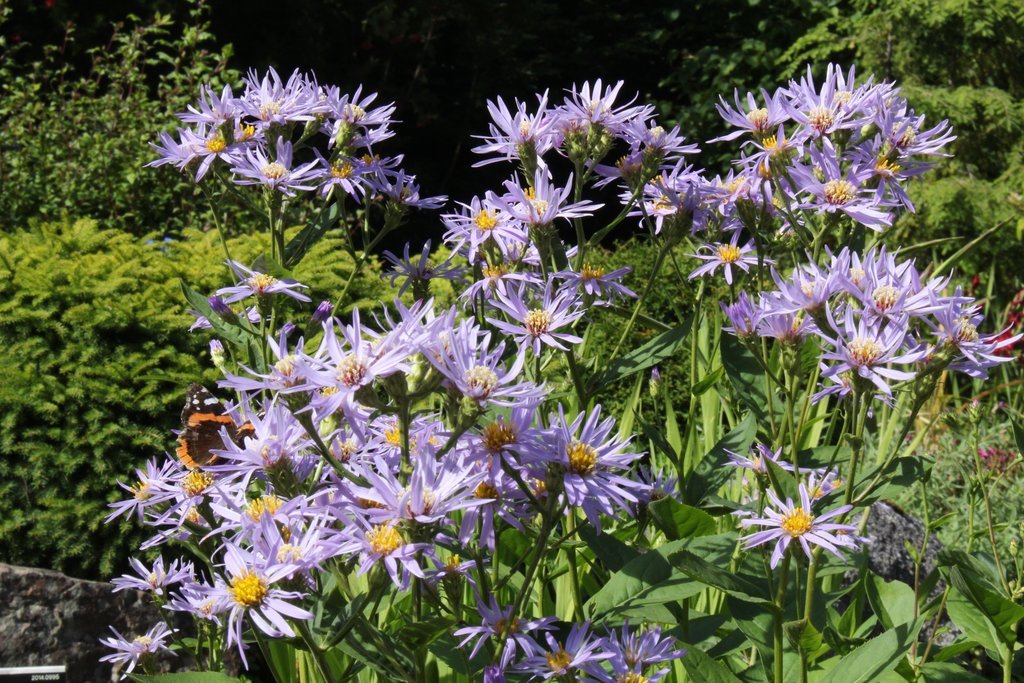Showy Aster
(Eurybia conspicua)
Showy Aster
Showy Aster (Eurybia conspicua) ranges widely throughout the northwestern United States and western Canadian provinces. Adapted to a variety of soil types from low to mid elevations, its blue to violet daisy-like flowers with yellow centers make a conspicuous display – hence the species name conspicua.
The rich nectar in the colorful blooms attracts flying insects, which are essential in the pollination of many flowering plants, including some of your garden vegetables. Want more butterflies in your outdoor areas? Try a bed of Showy Aster.
Showy Aster likes rich, loamy soils, moist or dry, and will grow in sun or partial shade. Resistant to most insects and diseases, Showy Aster is also not a favorite with deer and rabbits.
Plant Showy Aster in a pollinator garden or among other perennials to create a color garden. Stems grow 1-3 feet with flowers presented on top in clusters between late summer and early fall. Narrow, green leaves grow along the entire stem.
Showy Aster grows abundantly throughout the Arboretum: in the aspen meadow, by the dry rock wall and in the color garden near the History Museum.
Showy Aster is found on page 124 of the KNPS publication, Landscaping with Native Plants in the Idaho Panhandle, available at local bookstores and the Bonner County History Museum.
Native Plant Notes are created by the Kinnikinnick Native Plant Society. To learn more about KNPS and the North Idaho Native Plant Arboretum, explore www.nativeplantsociety.org.

